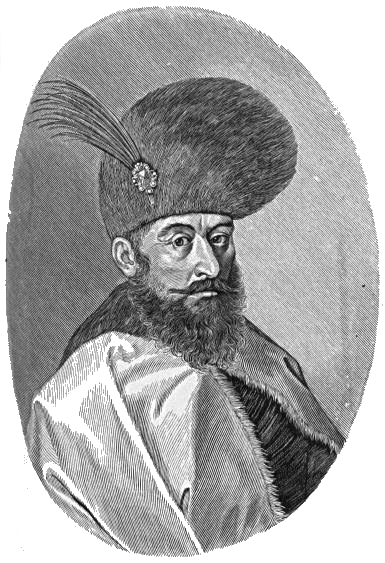G
GjergjKastrioti
Guest
Du nervst, das liest sich sowieso keiner durch.
Genau! Als hätte jemand vor hier sein Geschichtsstudium zu absolvieren
Drückt euch doch kürzer aus!
Du nervst, das liest sich sowieso keiner durch.


Michail Timofejewitsch Kalaschnikow
http://de.wikipedia.org/wiki/Michail_Timofejewitsch_Kalaschnikow
erfinder der ak-47:

Ich hab eine chinesische AK 47
Das ist so eine mit zusammenklappbaren Schaft.
aber nicht in D, oder?


Ivan Å ubaÅ¡ić - Wikipedia, the free encyclopediaDr. Ivan Šubašić (May 7, 1892 - March 22, 1955) was Croatian and Yugoslav politician, best known as the last Ban of Croatia.
He was born in Vukova Gorica, near Karlovac, then in Austria-Hungary. He finished grammar and high school in Zagreb, and enrolled onto the Faculty of Theology at the University of Zagreb. During the First World War, he was drafted into Austro-Hungarian Army where he took part in the fighting against Serbian forces on River Drina. Later he was sent to the Eastern Front where he used the opportunity to defect to Russians. From there he joined the Yugoslav volunteers fighting within the Serbian army on the Salonica Front.
After the war, Šubašić gained his law degree at Zagreb University, and after that, he opened a law office in Vrbasko. There he met Vladko Maček and joined the Croatian Peasant Party. In 1938, he was elected to the Yugoslav National Assembly.
In August 1939, Maček and then-Yugoslav Prime Minister Dragiša Cvetković reached the deal about the constitutional reconstruction of Yugoslavia and restoration of Croatian statehood in the form of Banate (Banovina) of Croatia - an autonomous entity which, together with Croatia proper, included large sections of today's Bosnia-Herzegovina and some sections of today's Vojvodina, which contained a Croatian majority. Šubašić was appointed as the first ban - titular head of this entity, in charge of its government.
The Banovina came to an end together with Kingdom of Yugoslavia, following the invasion of Axis powers in April 1941. Šubašić joined Dušan Simović and his Yugoslav government-in-exile, but before leaving, he refused to authorise the release of a large number of Croatian Communists and leftists, arrested and kept in prisons under his supervisions. Those prisons were soon taken over by the newly formed Independent State of Croatia and its prisoners were later executed by Ustashas.
In emigration, Šubašić first represented the Yugoslav royal government in USA. Gradually, the widening gap between the royalist government and Yugoslav major resistance movement embodied in Tito and his Communist-dominated Partisans forced Winston Churchill to mediate. Šubašić, a non-Communist Croat, was appointed as new Prime Minister in order to reach a compromise between Tito - whose forces represented the de facto government on liberated territories - and the monarchy, which preferred Draža Mihailović and his Serb-dominated Chetniks.
After publicly rejecting Mihailović, Šubašić met with Tito on the island of Vis and signed the Tito-Šubašić agreement, which recognised the Partisans as the legitimate armed forces of Yugoslavia in exchange for Partisans formally recognising and taking part in the new government. Šubašić kept his post until March 7, 1945, when Tito formally became Prime Minister of Yugoslavia. Šubašić was foreign minister in his cabinet until October, when he resigned, disagreeing with Communist policies of new government.
Šubašić spent the remainder of his life away from the spotlight. He died in 1955.
Treaty of Vis - Wikipedia, the free encyclopediaThe Treaty of Vis (Serbo-Croat: Viški sporazum) (also known as the Tito-Šubašić Agreement) was an attempt by the Western Powers to merge the pre-war royal government of the Kingdom of Yugoslavia with the communist-led partisans who were defending the country in the Second World War and were de facto rulers on the liberated territories.
It was signed on the island of Vis (in Croatia) on June 16, 1944 by Josip Broz Tito, the leader of the partisans, and Ivan Šubašić, envoy of the king and previously a ban of Croatia in the old kingdom. The actual formation of a new government was postponed until November 2, 1944 and the Belgrade Agreement.

The Avalon Project : Agreement for the Provisional Administration of Venezia Giulia; June 9, 1945Agreement signed at Belgrade June 9, 1945; Entered into force June 9, 1945; Terminated by memorandum of understanding of October 5, 1954(1), regarding Free Territory of Triest.
The Venona Story
- Covername KARAS (Ivan Subasic, KGB agent involved in Serbo-Croatian matters in the United States and abroad)
 anhören ?/i, kyrillisch Мило Ђукановић; * 15. Februar 1962 in Nikšić) war vom 26. November 2002 bis zum 10. November 2006 Premierminister der Republik Montenegro
anhören ?/i, kyrillisch Мило Ђукановић; * 15. Februar 1962 in Nikšić) war vom 26. November 2002 bis zum 10. November 2006 Premierminister der Republik MontenegroFolge dem Video um zu sehen, wie unsere Website als Web-App auf dem Startbildschirm installiert werden kann.
Anmerkung: Diese Funktion ist in einigen Browsern möglicherweise nicht verfügbar.
Wir verwenden essentielle Cookies, damit diese Website funktioniert, und optionale Cookies, um den Komfort bei der Nutzung zu verbessern.
Siehe weitere Informationen und konfiguriere deine Einstellungen